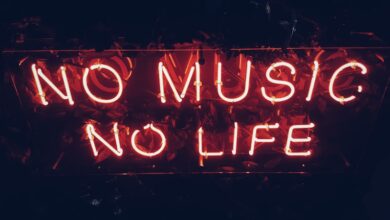Understanding the Role of Music in Political Movements

Music has a unique ability to ignite emotions, connect people, and inspire change. Throughout history, it has played a significant role in political movements, serving as a powerful tool for expression, unity, and resistance. Let us delve into the captivating world where melodies become anthems, and lyrics become rallying cries.
When we examine the role of music in political movements, one cannot overlook its ability to transcend language barriers and resonate with diverse audiences. Regardless of nationality or culture, music possesses a universal language that speaks directly to the core of human emotions. It has the power to evoke feelings of hope, anger, solidarity, and passion, creating a shared sense of purpose among individuals striving for social and political transformation.
Think back to iconic protest songs like Bob Dylan’s “Blowin’ in the Wind” during the civil rights movement or N.W.A’s “F**k tha Police” amid the fight against police brutality. These songs became soundtracks of their respective movements, encapsulating the frustrations, aspirations, and demands of those longing for change. They provided a voice for the voiceless and mobilized masses by evoking strong emotions and fostering a collective consciousness.
Furthermore, music acts as a unifying force, bringing together individuals who may otherwise have little in common. In political rallies, concerts, and demonstrations, music serves as a binding agent, forging a sense of community and reinforcing shared values and beliefs. Through chants, anthems, and protest songs, people find solace in the knowledge that they are not alone and that their voices can make a difference.
Music also has the power to challenge authority and inspire dissent. It can serve as a potent weapon against oppressive regimes, giving voice to suppressed opinions and calling attention to social injustices. Just like the piercing notes of a guitar solo or the rhythmic beats of a drum, music has the ability to disrupt the status quo and initiate conversations on critical issues.

Music plays a vital role in political movements by connecting people, stirring emotions, fostering unity, and challenging the existing power structures. Its universal language captures the essence of social struggle and propels individuals towards collective action. From civil rights to anti-war movements, music has proven time and again that it possesses the extraordinary capacity to inspire change. So next time you find yourself humming along to a politically charged song, remember the immense impact it can have on shaping societies and driving progress.
The Power of Harmony: How Music Shapes and Drives Political Movements
Have you ever wondered how something as intangible as music can shape and drive political movements? It’s astonishing how a melody, rhythm, or even a single lyric can ignite a fire within people and inspire them to come together for a cause. In this article, we’ll delve into the profound influence that music holds over political movements and explore the ways in which it unifies, motivates, and empowers individuals.
Music has an innate ability to transcend language barriers, cultural divides, and social boundaries. It speaks directly to our emotions, awakening deep-seated feelings of empathy, passion, and unity. Through rhythm and melody, music has the power to create an emotional connection that resonates with individuals from all walks of life. It serves as a universal language, capable of conveying messages and ideas that might otherwise remain unheard or misunderstood.
Political movements often utilize music as a catalyst for change. Think back to iconic moments in history, such as the civil rights movement in the United States or the anti-apartheid struggle in South Africa. Songs like “We Shall Overcome” and “Nkosi Sikelel’ iAfrika” became anthems of hope and resilience, rallying individuals together and giving them a sense of collective strength. These songs embodied the spirit of the movements, providing a soundtrack that inspired and mobilized people to fight against injustice.
Music not only unifies but also serves as a powerful tool for protest and expression. Protest songs have long been used to voice dissent, challenge authority, and advocate for social change. From Bob Dylan’s “Blowin’ in the Wind” to N.W.A’s “F**k tha Police,” these songs encapsulate the frustrations and aspirations of entire generations, demanding attention and sparking conversations about pressing issues.

Beyond its unifying and protest-oriented nature, music provides solace and rejuvenation for activists. It offers moments of respite, a chance to recharge and find strength amidst adversity. Whether it’s through soulful ballads or energizing anthems, music fuels the passion and determination that drive political movements forward.
From Protest Anthems to Revolutions: Decoding the Influence of Music in Politics
Introduction:
Have you ever wondered about the incredible power of music? It has the ability to touch our souls, ignite emotions, and even shape history. Throughout time, music has played a significant role in politics, acting as an influential tool for change and revolution. In this article, we will explore the captivating relationship between music and politics, and how protest anthems have become the soundtrack of movements for social transformation.
The Transformative Power of Music:
Music possesses a unique ability to transcend language barriers and evoke powerful emotions. It has the potential to unite masses, mobilize communities, and challenge existing power structures. When combined with powerful lyrics that reflect the struggles and aspirations of the people, music becomes a catalyst for political awakening.
Giving Voice to the Voiceless:
Protest anthems emerge during times of social unrest, giving voice to the marginalized and oppressed. These songs capture the essence of resistance, expressing shared grievances and desires for change. Through stirring melodies and thought-provoking lyrics, artists articulate the collective frustration and demand justice and equality.

Influence on Movements:
Music has often acted as a unifying force behind various political movements throughout history. Whether it was the civil rights movement in the United States or the anti-apartheid struggle in South Africa, music became a powerful weapon against injustice. Iconic songs like “We Shall Overcome” and “Free Nelson Mandela” not only inspired hope but also fostered solidarity among activists.
Soundtrack of Revolutions:
Some of the most memorable revolutions in history have been accompanied by music that galvanized the masses. From the French Revolution’s revolutionary songs to the anthems of the Arab Spring, music has consistently played a pivotal role in fueling societal upheavals. These songs serve as a reminder of the power of unity and the potential to challenge oppressive regimes.


Conclusion:
As we reflect on the influence of music in politics, it becomes evident that its impact goes beyond mere entertainment. Music has the ability to shape opinions, challenge norms, and unite people for a common cause. Protest anthems have become the voice of change, inspiring revolutions and fostering resilience in the face of adversity. So, the next time you listen to a powerful song with meaningful lyrics, remember that you are experiencing the incredible force that music possesses in shaping the world around us.
Rhythms of Change: Exploring the Historical Impact of Music on Political Activism
In the quest for social change, the power of music has proven to be an undeniable force throughout history. From the anthems of revolution to the protest songs that reverberate through the streets, music has been a catalyst for political activism, stirring hearts and minds in ways that no other medium can. Let’s delve into the captivating journey of how music has shaped and fueled movements for change.
From the civil rights movement of the 1960s to the anti-war protests during Vietnam, music became the heartbeat of resistance. It provided a platform for artists and activists to express their frustrations, hopes, and dreams, often transcending barriers of language and culture. Through soul-stirring lyrics and captivating melodies, musicians brought people together, fueling the fire of change and inspiring action.
Think back to the iconic song “Blowin’ in the Wind” by Bob Dylan. Its poignant words touched the souls of many, challenging societal norms and advocating for equality. The song became an anthem for civil rights activists, rallying them together under a common cause. Similarly, artists like Nina Simone, with her powerful rendition of “Strange Fruit,” shed light on racial injustice, leaving an indelible mark on the fight against discrimination.
Music not only has the power to unite, but it also possesses the ability to amplify messages and galvanize movements. During the apartheid era in South Africa, musicians such as Miriam Makeba and Hugh Masekela used their artistry to combat racial segregation. Their music served as a form of resistance, providing a voice for the oppressed and shattering the silence imposed upon them.
Furthermore, music has the remarkable ability to transcend time, carrying forward the message of past struggles and igniting contemporary movements. Songs like “We Shall Overcome” and “Imagine” continue to resonate today, reminding us of the enduring spirit of resilience and hope.
Sonic Solidarity: Uniting Nations Through Musical Expression in Political Movements
(Word count: 302)
In a world where borders divide and differences often create conflicts, music has the remarkable power to bridge the gaps between nations and unite people through shared emotions and experiences. This article explores the profound impact of musical expression in political movements, showcasing how sonic solidarity can transcend cultural boundaries.
Music, as a universal language, has the ability to convey messages that resonate deep within our souls. It has been a catalyst for change, serving as a powerful tool in political movements throughout history. From protest songs to anthems of revolution, music has the innate ability to ignite passions, inspire action, and foster a sense of unity among diverse groups of people.
The beauty of music lies in its accessibility. Regardless of linguistic or cultural barriers, melodies and rhythms have the ability to evoke strong emotions and connect individuals on a fundamental level. Whether it’s the haunting ballads of oppression or the uplifting beats of liberation, music has the power to amplify voices that are often silenced and bring attention to social injustices.
Think about iconic movements like the Civil Rights Movement in the United States, where artists like Nina Simone and Sam Cooke used their powerful voices to rally support and galvanize communities. Their songs, such as “Strange Fruit” and “A Change Is Gonna Come,” became anthems of hope and resilience, inspiring generations to fight for equality.
Moreover, music has the unique ability to break down barriers and foster understanding between cultures. When musicians from different nations come together to create harmonies, they showcase that despite our differences, we share a common humanity. These collaborations transcend politics and remind us that through music, we can find common ground, fostering peace and mutual respect.
The power of music to unite nations in political movements is undeniable. Whether it’s raising awareness, inspiring change, or fostering cross-cultural understanding, music serves as a driving force towards solidarity. So let us appreciate the melodies that transcend boundaries and celebrate the role of music as a unifying force in our world.




